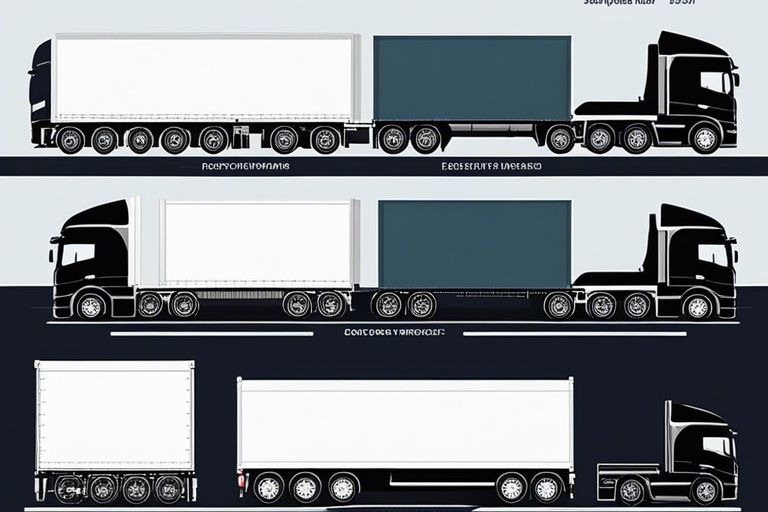Just like a well-executed demolition project can bring down old structures, it also has the power to impact your tax liabilities in ways you might not expect. Concerning the tax treatment of demolition costs, there are crucial rules and considerations that every property owner should be aware of. At LG Local Grab, as the UK’s #1 grab hire and demolition service, we understand the importance of navigating the complex landscape of tax laws related to demolition.
Demolition costs may qualify for capital allowances under Section 26 CAA2001, but the devil is in the details. While some costs may be deductible, others may not be eligible for tax relief. The intricacies of these regulations can have a significant impact on your overall tax position. Understanding how demolition costs can affect your capital gains tax liability is vital for making informed decisions about your property investments.
By triggering a deemed disposal when demolishing a building, property owners can potentially unlock tax savings and benefits. This strategy can create opportunities to accelerate the use of capital losses and optimise the application of private residence relief. Each case is unique, and a thorough analysis is necessary to determine if claiming a deemed disposal is a worthwhile tax-saving strategy. At LG Local Grab, we are committed to helping our clients navigate the complexities of demolition costs and tax implications with authority and expertise.
Key Takeaways:
- Demolition Costs Can Impact Capital Gains Tax: Knocking down a property to make major changes can trigger a deemed disposal, potentially affecting capital gains tax calculations.
- Advantages of Creating a Deemed Disposal: By triggering a deemed disposal, it may accelerate the use of capital losses and create a new period of ownership for private residence relief purposes.
- Consideration on a Case-by-Case Basis: Each situation involving demolition costs and tax implications needs to be evaluated individually to determine if claiming a deemed disposal is beneficial for tax savings.
Understanding Demolition Costs
Some demolition costs can be tax deductible, but it is vital to understand the specifics of what falls under this category. To determine whether demolition costs are allowable deductions, one must consider the guidelines provided in tax laws and regulations.
Definition of Demolition Costs
Costs related to the demolition of structures involve expenses incurred in the process of tearing down buildings or other types of structures. This includes activities such as dismantling, site clearance, waste removal, and any necessary preparation work before reconstruction or development can take place.
Types of Demolition Expenses
The types of demolition expenses that may be considered deductible can vary. Common examples include labour costs, equipment hire, waste disposal fees, and any necessary permits or permissions required for the demolition process. It is crucial to keep detailed records of all expenses associated with the demolition to support any tax deductions claims.
After thoroughly reviewing the demolition costs, it is important to consult with a tax professional to determine the eligibility of claiming these expenses as deductions.

Tax Deductions for Demolition Costs
General Tax Rules for Deduction Eligibility
Now, The general tax rules for determining the eligibility of deductions for demolition costs are outlined in the context of the UK tax legislation. When demolition costs are considered allowable deductions, they are deductible in calculating the gain or loss resulting from the deemed disposal of the bare site. It is important to note that if any allowable expenditure on the building or structure has already been fully covered by capital allowances, no loss relief is available as per Section 41 (2) of TCGA92.
The specific rules regarding demolition costs and their tax implications can vary depending on the circumstances of the demolition and the subsequent actions taken by the property owner. Understanding these rules is important for ensuring compliance with tax regulations and maximising potential tax deductions.
There are special provisions and considerations to be aware of when it comes to claiming deductions for demolition costs, especially in cases where the site value exceeds the building or structure value. By delving deeper into the specific tax provisions related to demolition, property owners can make informed decisions regarding their tax obligations and deductions.
Specific Tax Provisions Related to Demolition
On demolition costs, it is crucial to consider the specific tax provisions related to demolition outlined in the UK tax legislation. These provisions detail the circumstances under which demolition costs may qualify for capital allowances and how they should be allocated to the appropriate tax pools. In cases where the costs relate to demolishing plant and machinery, they are deemed to qualify for capital allowances and may be deducted accordingly.
Property owners should be aware of the special rules for deemed disposals under Section 24 (12) of TCGA92 that apply to demolition events occurring after 30 November 1993. By understanding these provisions and complying with the tax regulations, property owners can ensure that they are making the most of potential tax deductions related to demolition costs.
With respect to claiming deductions for demolition costs, property owners must also consider any limitations and restrictions that may apply. By understanding these limitations and restrictions, property owners can accurately assess their tax obligations and deductions related to demolition activities.
Limitations and Restrictions on Deductions
Rules regarding the limitations and restrictions on deductions for demolition costs play a crucial role in determining the tax implications of such expenses. It is important to note that while the costs of demolition may qualify for capital allowances under Section 26 of CAA2001, certain restrictions may apply based on the nature of the demolition expenses.
Property owners must carefully navigate these rules to ensure that they are correctly applying for tax deductions on demolition costs and complying with the relevant tax legislation. By staying informed about the limitations and restrictions imposed on deductions for demolition costs, property owners can avoid potential tax pitfalls and optimise their tax planning strategies.
Demolition costs can have a significant impact on property owners’ tax liabilities, and understanding the rules and regulations surrounding tax deductions for such expenses is crucial. By staying informed about the general tax rules, specific provisions related to demolition, and any limitations on deductions, property owners can navigate the tax landscape with confidence and ensure compliance with HMRC regulations.
Demolition Costs and Capital Allowances
Allocation of Demolition Costs in Tax Filings
For Demolition Losses – Master Tax Guide, when considering the tax implications of demolition costs, it is imperative to appropriately allocate these expenses in tax filings to ensure compliance with regulations. Demolition costs may qualify for capital allowances under Section 26 CAA2001. While costs relating to demolishing building structures like concrete and steelwork are not eligible, expenses related to demolishing plant and machinery are considered qualifying for capital allowances. These costs are assigned to the relevant pool, such as the general pool or special rate pool, for tax computations. It is crucial to accurately categorise and allocate these costs to maximise the available tax benefits.
Capital Allowances on Demolition of Plant and Machinery
An understanding of capital allowances on the demolition of plant and machinery is vital for tax planning purposes. Any allowable expenditure on the demolition of plant and machinery that has been fully covered by capital allowances is ineligible for loss relief under Section 41(2) TCGA92. This means that no loss relief can be claimed for these expenses. By properly identifying and claiming capital allowances on the demolition of plant and machinery, individuals and businesses can optimise their tax position and ensure compliance with tax regulations.
With proper knowledge and appropriate tax planning, individuals and businesses can navigate the interaction between demolition costs and other capital allowances effectively. Understanding how demolition costs impact capital allowances related to plant and machinery, buildings, and structures is crucial for maximising tax benefits and optimizing overall tax liabilities. By considering these factors carefully and seeking professional advice, taxpayers can make informed decisions that align with their financial goals and comply with HMRC regulations.
Interaction with Other Capital Allowances
An additional consideration when dealing with demolition costs is their interaction with other capital allowances available. To obtain the full tax benefits associated with demolition expenses, individuals and businesses must assess how these costs align with other capital allowances, such as those related to property improvements or renovations. Properly managing the interaction between demolition costs and other capital allowances can lead to substantial tax savings and ensure compliance with HMRC regulations. By leveraging the opportunities presented by capital allowances and demolition costs, taxpayers can enhance their overall tax planning strategies and maximise available tax reliefs.
The Role of Capital Gains Tax in Demolition
Not only are demolition costs a significant financial consideration in property development, but they also have implications for capital gains tax deductions. To examine deeper into this topic, read more about Deduct Your Demolished Building Using a General Asset Account.
Understanding Capital Gains Tax and Property
Demolition can trigger a deemed disposal of the land the building stood on, impacting capital gains tax calculations. Any resulting loss from demolition may be deductible, but strict conditions must be met. It is crucial to identify when the deemed disposal applies and how it affects the overall capital gains tax position.
Capital gains tax liabilities can significantly impact property owners navigating demolition projects. By understanding the intricacies of tax rules concerning demolition, individuals can make informed decisions and minimise potential tax obligations.
Property owners facing demolition need to be aware of the tax implications and seek professional advice to ensure compliance with capital gains tax regulations. By carefully considering the impact of demolition on capital gains calculations, individuals can strategically plan their property development projects.
Impact of Demolition on Capital Gains Calculations
Capital gains tax calculations following demolition can vary significantly depending on various factors, including the value of the land post-demolition, applicable deductions, and potential capital losses. Property owners must accurately assess the financial consequences of demolition on their capital gains tax position.
Understanding the impact of demolition on capital gains tax calculations is crucial for property owners undertaking redevelopment projects. By evaluating the tax implications of demolition, individuals can effectively manage their tax liabilities and optimise their financial outcomes.
By factoring in the implications of demolition on capital gains tax calculations, property owners can develop comprehensive strategies to mitigate tax obligations and maximise returns on their property investments.
Strategies for Minimising Capital Gains Tax on Demolition
Implementing effective strategies to minimise capital gains tax liabilities resulting from demolition is imperative for property owners aiming to maximise their financial gains. By utilising available deductions and exemptions, individuals can strategically plan their demolition projects to reduce their overall tax burden.
Property owners should explore various tax-saving opportunities, such as capital allowances for demolition costs and potential relief options. By proactively addressing capital gains tax implications associated with demolition, individuals can enhance the profitability of their property development ventures.
Strategising to minimise capital gains tax obligations on demolition projects can lead to significant tax savings and improve the overall financial outlook for property owners. By employing tailored tax mitigation techniques, individuals can navigate the complexities of capital gains tax regulations and optimise their returns from demolition activities.

Demolition and Property Improvements
Many property owners are often faced with the decision of whether to demolish and rebuild or renovate their existing structures. In terms of tax deductions for demolition costs, it is crucial to understand the guidelines set out by HMRC. For in-depth information on tax deductions related to demolition costs, you can refer to Tax Blueprint for Deducting Demolition Costs.
Distinguishing Between Demolition and Improvement Costs
Improvement costs refer to expenses incurred to enhance a property’s value or functionality, while demolition costs are specifically related to the removal of structures. It is important to distinguish between the two, as only certain improvements may qualify for tax deductions whereas demolition costs may have different implications. Ensuring accurate record-keeping of these costs is vital for tax purposes.
How Property Improvements Affect Tax Deductions
On the taxation front, the impact of property improvements can vary. Certain improvements may qualify for tax deductions or capital allowances, potentially reducing the tax liability for property owners. Understanding how different types of improvements can affect tax deductions is crucial for making informed decisions regarding property development and renovation projects. With property improvements having a direct impact on tax deductions, property owners must keep accurate records of all expenses related to the demolition and subsequent improvements made to the property. Detailed documentation of costs incurred, invoices, and receipts will be crucial when claiming tax deductions or allowances associated with property renovations and enhancements.
Records and Documentation Required for Tax Purposes
Demolition costs and any subsequent property improvements must be supported by comprehensive records for tax purposes. HMRC may require evidence of expenses related to the demolition, as well as documentation detailing the nature and value of property improvements. By maintaining organised records, property owners can ensure compliance with tax regulations and maximise potential deductions or allowances available for their property projects.
Replacement Property and Rollover Relief
Eligibility for Rollover Relief on Replacement Properties
All demolition costs incurred in acquiring a replacement property can be eligible for rollover relief under Section 24 (3) TCGA92. This relief allows property owners to defer capital gains tax on the disposal of the demolished property by reinvesting the proceeds into a replacement property. One key criterion for eligibility is that the replacement property must be acquired within a certain timeframe, typically within two years of the demolition of the original property. This can offer significant tax savings for individuals looking to upgrade or rebuild their properties.
Furthermore, the replacement property must be used for the same purposes as the original property in order to qualify for rollover relief. This ensures that the tax benefits are tied to the continuation of the property’s original intended use, promoting investment in property development and improvement.
Property owners must carefully document and report the demolition costs incurred as part of the replacement property acquisition process to claim rollover relief successfully. Ensuring compliance with HMRC guidelines and timelines is important to maximise the tax benefits of this relief.
Calculating the Rollover Relief on Demolition
Replacement properties eligible for rollover relief can benefit from the deferral of capital gains tax on the disposal of the original property. Calculating the rollover relief amount involves offsetting the demolition costs incurred against any gains realised from the disposal of the original property. This results in a reduction of the taxable gain, providing property owners with a valuable tax-saving opportunity.
In cases where the replacement property exceeds the market value of the original property, property owners can leverage the rollover relief to mitigate tax liabilities effectively. By accurately calculating and reporting the demolition costs in line with HMRC regulations, property owners can optimise the rollover relief benefits and minimise their tax obligations.
It is crucial for property owners to seek professional advice in calculating and claiming rollover relief to ensure compliance with tax laws and regulations. By thorough documentation and accurate calculations, property owners can navigate the complexities of tax deductions related to demolition costs and replacement property acquisitions, maximising their tax savings potential.
Reporting and Claiming Rollover Relief
Any property owner looking to claim rollover relief must report the demolition costs and replacement property details accurately to HMRC. Timely submission of the necessary documents and adherence to HMRC guidelines are important for a successful claim. Failure to report and claim rollover relief appropriately can lead to penalties and potential tax liabilities.
Property owners should maintain detailed records of all demolition costs incurred and provide evidence of the replacement property acquisition to support their rollover relief claim. Seeking professional assistance in preparing and submitting the claim can streamline the process and ensure compliance with HMRC requirements.
Relief from capital gains tax on demolition costs can significantly benefit property owners undertaking replacement property projects. By following HMRC guidelines and accurately reporting demolition expenses, property owners can optimise their tax position and maximise the rollover relief benefits available to them.

Special Circumstances: Involuntary Conversions and Compulsory Purchases
Involuntary Conversions and Tax Implications
To ensure your understanding of the tax implications surrounding demolition costs, it is crucial to consider involuntary conversions. In situations where a property is demolished involuntarily, such as due to a natural disaster or other unforeseen circumstances, special tax treatments may apply. The Taxation of Chargeable Gains Act 1992 dictates that a deemed disposal can be triggered, potentially allowing for tax relief or deductions related to the involuntary conversion.
Compulsory Purchase Orders and Demolition
Regarding compulsory purchase orders and demolition, there are additional complexities to consider. In cases where a property is acquired under a compulsory purchase order and subsequently demolished, specific tax rules come into play. These rules may impact the deductions available to the property owner and require careful navigation to ensure compliance with HMRC regulations.
Understanding the nuances of compulsory purchase orders and demolition is crucial for property owners facing such circumstances. Whether the property is being acquired for public infrastructure projects or other reasons, being aware of the tax implications can help in making informed decisions regarding deductions and financial planning.
How to Claim Deductions for Involuntary Conversions
Regarding claiming deductions for involuntary conversions, it is important to follow the correct procedures outlined by HMRC. By accurately documenting the demolition costs and the circumstances leading to the involuntary conversion, property owners can potentially benefit from tax relief or deductions. Seeking professional advice from tax experts can also be beneficial in ensuring compliance with HMRC regulations.
To make the most of available deductions for involuntary conversions, property owners must thoroughly understand the tax implications and take the necessary steps to claim any eligible relief. By proactively addressing tax considerations related to demolition costs in involuntary conversion situations, property owners can optimise their financial outcomes and minimise potential tax liabilities.
Audits and Legal Considerations
Preparing for Tax Audits on Demolition Costs
To ensure compliance and avoid penalties, it is crucial for businesses like LG Local Grab to be prepared for tax audits on demolition costs. One important step in this process is to maintain detailed records of all demolition activities, including invoices, receipts, and documentation of any capital allowances claimed. This evidence will be necessary during an audit to demonstrate the legitimacy of any deductions taken.
Additionally, it is advisable to work closely with a tax professional who specialises in capital gains tax and can provide guidance on navigating the complexities of demolition cost deductions. Regular audits of financial records can also help identify any potential issues early on and address them proactively.
By proactively preparing for tax audits on demolition costs, LG Local Grab can mitigate the risk of non-compliance and ensure that their tax deductions are legitimate and in line with HMRC regulations.
Legal Precedents Affecting Deductibility of Demolition Costs
Legal precedents play a significant role in determining the deductibility of demolition costs for businesses like LG Local Grab. Understanding past cases where deductions for demolition expenses were allowed or disallowed can help inform decision-making and compliance efforts.
Factors such as the extent of the demolition, the classification of the assets being demolished, and any relevant tax laws can impact the deductibility of costs. One key consideration is to ensure that any deductions claimed align with HMRC guidelines and legal precedents to avoid potential penalties or challenges during an audit.
By staying informed about legal precedents affecting the deductibility of demolition costs, businesses like LG Local Grab can make informed decisions and ensure compliance with tax laws, ultimately reducing the risk of penalties and non-compliance.
Planning and Consulting Professionals
Importance of Tax Planning Before Demolition
Keep in mind that when contemplating demolition costs, tax planning is crucial to mitigate potential financial implications. Consulting tax professionals or accountants prior to demolishing a structure can help navigate the complex terrain of capital gains tax and deductions. By proactively strategising the demolition process, you can ensure that you maximise tax benefits while avoiding pitfalls.
Professionals in tax planning possess the expertise to assess your specific situation, calculate potential gains or losses, and recommend the most tax-efficient approach. They can advise on when to trigger deemed disposals, utilise deductions for demolition costs, or claim losses as allowable expenditure. Their guidance can significantly impact your overall financial outcome, making it vital to engage with them early in the demolition planning process.
With their knowledge and experience, tax professionals can help you make informed decisions that align with HMRC regulations and optimise your tax position. By working closely with these experts, you can navigate the intricate landscape of tax implications associated with demolition costs and ensure compliance with relevant legislation.
When to Consult Tax Professionals or Accountants
Accountants and tax professionals should be consulted well in advance of any demolition project to assess the potential tax implications and devise a strategic plan. When considering the demolition of a property, it is vital to engage with these professionals to evaluate the financial impact, determine the most tax-efficient path, and mitigate any risks associated with the process.
A proactive approach to seeking advice from tax professionals or accountants can help you avoid costly mistakes and ensure compliance with HMRC regulations. By consulting these experts early on, you can streamline the tax planning process, maximise deductions, and minimise the tax burden associated with demolition costs.
Role of Legal Advisors in Demolition and Tax Planning
To complement the expertise of tax professionals and accountants, legal advisors play a crucial role in ensuring the legal aspects of demolition and tax planning are handled appropriately. Legal advisors can provide guidance on property laws, contracts, and any legal implications surrounding demolition activities.
Demolition projects involve intricate legal considerations, and legal advisors can offer valuable insights to protect your interests and ensure compliance with all relevant regulations. By incorporating legal expertise into your demolition and tax planning strategy, you can navigate potential legal challenges with confidence and safeguard your financial position.
Conclusion
So, are demolition costs tax deductible? The answer is yes, but it’s important to carefully consider the tax implications before deciding to knock down a property. While the demolition costs themselves may be eligible for capital allowances, triggering a deemed disposal under s 24(3) of the Taxation of Chargeable Gains Act 1992 can have significant benefits in terms of capital gains tax savings.
By creating a disposal when demolishing a property, homeowners like our client Jenny can potentially accelerate the use of any resulting capital loss and benefit from a new period of ownership for private residence relief purposes. This strategic approach can lead to substantial tax savings, especially if the new property is used as the main residence after construction.
At LG Local Grab, as experts in grab hire and demolition services, we understand the importance of considering the tax implications of demolishing a property. With careful planning and expert advice, homeowners can make informed decisions that not only meet their construction needs but also maximise their tax savings. So, when it comes to demolition costs, it pays to be aware of the potential tax benefits of triggering a deemed disposal.
FAQ
Q: Are demolition costs tax deductible?
A: Yes, demolition costs can be tax deductible under certain circumstances. When demolition costs are allowable deductions, they are deductible in arriving at the gain or loss arising on the deemed disposal of the bare site. For specific details, refer to Section 26 CAA2001.
Q: What factors determine if demolition costs are tax deductible?
A: The tax deductibility of demolition costs depends on various factors such as whether the costs relate to demolishing a building structure or plant and machinery, and if any capital allowances have been fully covered by the expenditure. It’s imperative to understand the specific regulations outlined in the Taxation of Chargeable Gains Act 1992.
Q: How can making major changes to a property affect capital gains tax?
A: Making major changes to a property, such as demolishing and rebuilding, can impact capital gains tax. A deemed disposal can be triggered when a building is demolished, leading to potential tax implications based on the market value of the land site and other relevant factors at the time of the demolition.
Q: What are the benefits of triggering a deemed disposal in the context of demolition?
A: Triggering a deemed disposal can result in accelerating the use of capital losses, creating a new period of ownership for Private Residence Relief (PRR) purposes, and potentially reducing the base cost for future disposals. By understanding the implications, individuals can optimise their tax position when undergoing demolition and rebuilding projects.
Q: How does the Taxation of Chargeable Gains Act 1992 impact demolition projects?
A: The Taxation of Chargeable Gains Act 1992 includes provisions that determine the treatment of demolition costs, deemed disposals, and capital gains in relation to property demolitions. It is crucial for individuals undertaking demolition projects to be aware of these regulations to manage their tax liabilities effectively.
Q: What should individuals consider when claiming tax deductions on demolition costs?
A: Individuals should consider factors such as the complete demolition of a building, the applicability of capital allowances, the potential for creating a deemed disposal, and the impact on future capital gains tax liabilities. Seeking professional advice and understanding the specific tax rules can help individuals navigate the complexities of claiming deductions on demolition expenses.
Q: How can engaging with a professional grab hire and demolition service assist with tax implications?
A: Working with a professional grab hire and demolition service like LG Local Grab can provide valuable insights and assistance in managing tax implications related to demolition projects. Their expertise can help individuals make informed decisions, comply with tax regulations, and optimize their tax position when undertaking property demolitions.







